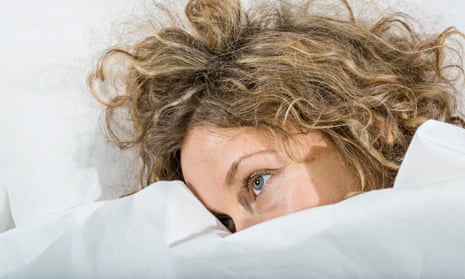Since ITV’s News at Ten anchor and friend of the royals Tom Bradby disappeared from his nightly show five weeks ago, fans have been wondering where he is. It turns out he has been off sick with a bout of insomnia. The presenter is far from alone – 30-50% of the UK population suffer with symptoms of insomnia, which range from short-term bouts of sleeplessness to chronically broken sleep. So, what can you do if you’re in a sleepless rut? Here are some options to help you drift off ...
Create the right sleep environment
Keep your bedroom quiet, use effective window shades and only use your bed for sex and sleep. If you like to read or listen to music before bed to wind down, do it in another room, then go to bed when you feel drowsy. The blue wavelengths in light from laptops and phones supress melatonin, a natural hormone that controls your sleep cycle, so keep these in another room, too.
CBT-I therapy
Cognitive behavioural therapy for insomnia has been shown to work for 70-80% of patients. Initially, you restrict sleep. So, if you’re lying in bed awake for half an hour, get out of bed and do something for 40 minutes that is not mentally engaging and doesn’t require bright lights. Then go back to bed and repeat the process if you don’t fall asleep. Make sure you get up at the usual time the next day, and repeat the process the next night. Most insomniacs see a difference in between seven to 10 days.
Stay away from stimulants
Caffeine and nicotine interfere with the process of falling asleep and affect your ability to reach deep sleep. Studies have shown that smokers typically have more fragmented sleep and spend fewer hours in the deep-sleep phase. Avoid drinking alcohol late at night; this will disrupt your sleep as your body metabolises it.
Magnesium supplements
These can act as a natural insomnia remedy as they decrease levels of the stress hormone cortisol and help with muscle relaxation. Magnesium also binds to a neurotransmitter in the brain called Gaba in the same way as over-the-counter insomnia medications.
Exercise
The healthier you are, the better your sleep will be – about two and a half hours a week of moderate aerobic exercise, such as swimming or jogging, is recommended. However, don’t hit the gym too close to bedtime – give your body three to four hours after exercise to allow your heartbeat and adrenaline levels time to stabilise.
Medication
For people with severe chronic insomnia – lasting more than a few months – medication can be an option. Many of these work by altering the activity of chemicals in the brain that are responsible for keeping you awake. Drugs that have been clinically approved for long-term use include eszopiclone, ramelteon, zaleplon and zolpidem, but they can be addictive, and cause side-effects such as drowsiness, so it’s important to talk to your doctor about using them.

Comments (…)
Sign in or create your Guardian account to join the discussion